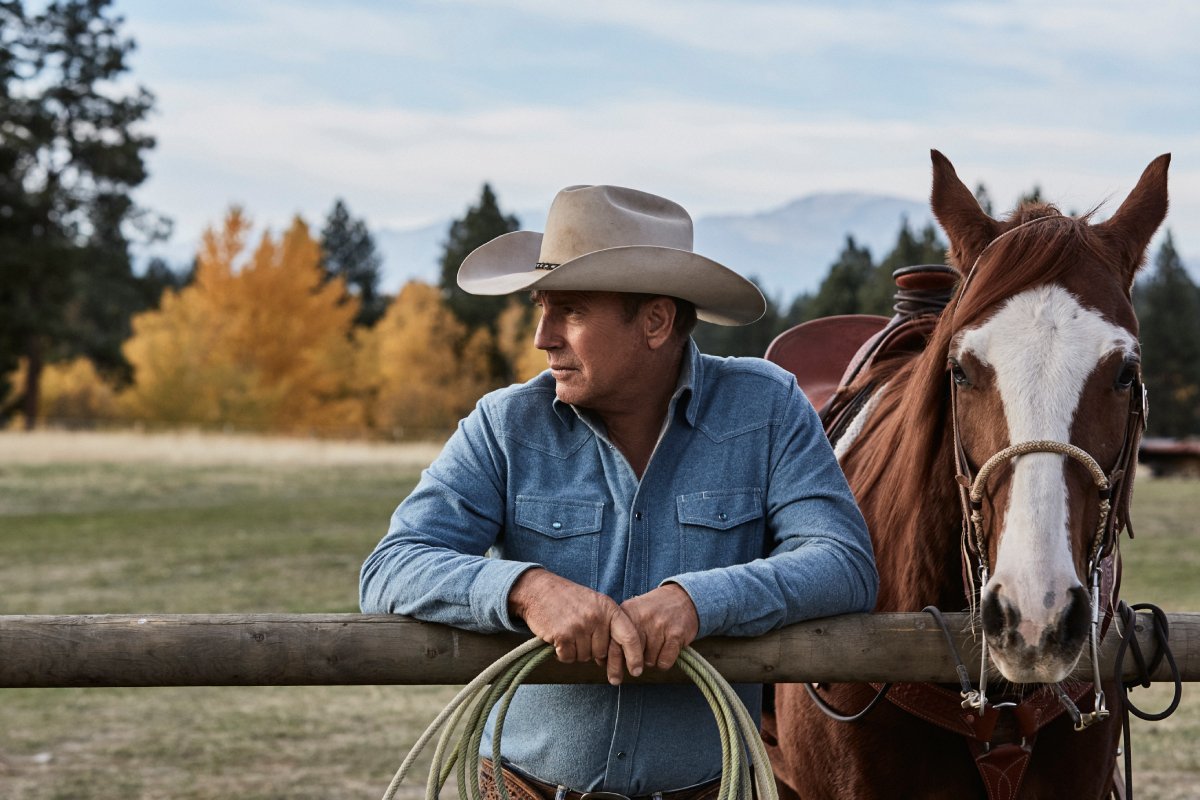I May Have to Start Watching Yellowstone
I guess I’m the only person in the world who’s never seen the hit TV show Yellowstone. I’ve been told by pretty much everyone in my life that I need to watch it; and asked by pretty much everyone in my life if I know John Dutton, seen Rip, or if I’ve driven by the “Train Station.” I’ll admit, I’ve kind of not watched Yellowstone just in protest to the annoying questions, but this week, a quote from the show was shared with me by all those curious, Dutton Lovers:
“You ever plow a field? To plant quinoa or sorghum or whatever the hell it is you eat? You kill everything on the ground and under it. You kill every snake, every frog, every mouse, mole, vole, worm, quail…you kill them all. So I guess the only real question is: how cute does an animal have to be before you care if it dies to feed you?”
— John Dutton, Yellowstone
Dutton has a great point. I’m told he was saying this to a vegan, animal activist and truly, it’s a great argument — kudos to the writers of Yellowstone for adding this dialogue in there because it’s something not many people think about.
Many farmers do, in fact, keep their fields “clean” from vermin when planting, growing, and harvesting. They do this to protect their crop and feed the masses, just as they would protect a pasture full of cows from a wolf.
To add to Dutton’s rant, and for good measure because anti-ags bring up this argument frequently: the majority of the Amazon is actually burned and cleared to produce soybeans — the leading ingredient in most alternative protein sources.
It drives me absolutely crazy when I see anti-ags go on a rant about deforestation of the Amazon. It’s not being burned to the ground and replanted with grass for cattle to graze on; it’s being burned down and replanted with soybeans for vegans to graze on.
Another point I like that Dutton makes is “how cute does an animal have to be before you care if it dies to feed you?”
This is actually hilariously ironic to me, because he’s pointing out basic “speciesism.” Which is something I have never seen someone use AGAINST an anti-ags.
As defined by Oxford, speciesism is “the assumption of human superiority leading to the exploitation of animals.”
I see posts about speciesism in my vegan and anti-ag groups every single week. Most of the time it’s a photo of a cow and a dog side by side, posing the question of “why do we eat one but not the other?” then touting their point that “all animals are the same.”
In case I need to clarify: no, all animals are not the same.
Monkeys, for example, can be trained to ride bicycles and some can even do basic arithmetic. Dogs can fetch just about anything if you practice with them a few times. Cats know to use a litter box without even promoting them to. And cows…well, let’s just say I have witnessed more than my fair share of cows who don’t even recognize their offspring seconds after giving birth to them.
In short: not all animals are the same intellectually, emotionally, or tastefully (if that’s even a word).
The last and final point I want to make is this: for everyone, even me, who moans and groans about Yellowstone for its dramatization of western culture, language, or nudity…Yellowstone got across an incredibly valid point to their 14.7 million viewers better than anyone in agriculture ever has.
I saw a fellow agvocate post this week that they were slightly upset that Yellowstone did what we in agriculture should be doing every day. And they’re right — we should be doing all we can to prove valid points such as John Dutton’s to the masses. But do we have the kind of viewership Yellowstone does?
Yellowstone’s viewing demographic reaches more “on the fencers” about ag than me with my few thousand Instagram followers who all love agriculture. Sure, I can try to get to that moveable middle, but it’s not as effective as an Emmy nominated television show.
As a member of the anti-Yellowstone fan club, it pains me to admit this, but this TV show did more for the dispersal of agricultural literacy than I ever have — and I thank the writers of Yellowstone for that.

